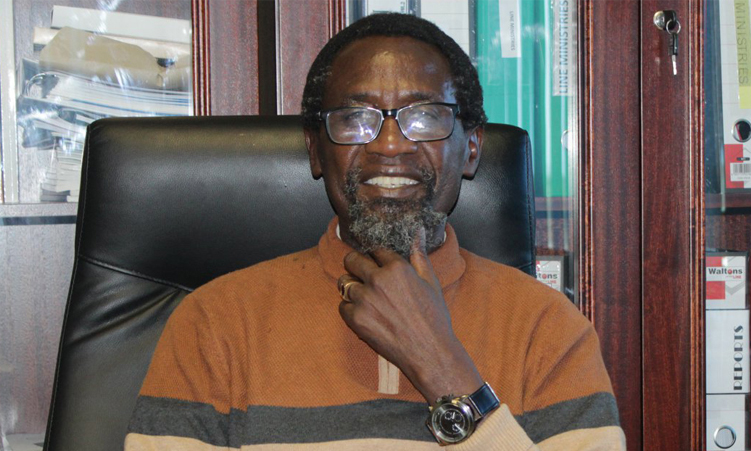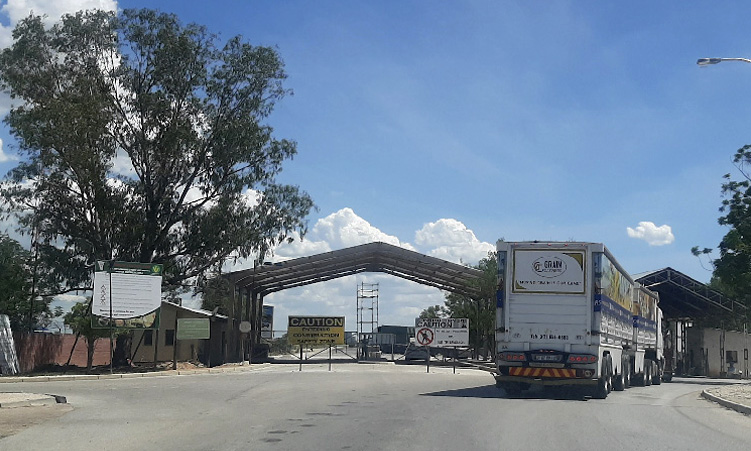Farmers and representatives of traditional authorities in the northern regions are advocating the removal of the veterinary cordon fence to allow them to have access to the international beef market.
Those farming within the northern communal areas say they are suffering financially because they do not have access to the lucrative beef market or even access to the local market south of the redline.
Ondonga Traditional Authority secretary Frans Enkali says the redline can only be removed if the government recognises the traditional authorities in the country in their decision making policies.
“I suggest the Ministry of Agriculture, Water and Land Reform creates buffer zones to control the animal movement and diseases if they cannot completely remove the redline. This is the only solution and the movement of animals will be controlled better in that way,” he said.
Namibia National Farmers Union (NNFU) president Jason Emvula says the redline should be removed to allow northern farmers to benefit from the lucrative beef market and to be allowed to export beef products to Angola and Ghana.

“If we are all Namibians, let us take care of each other and please, let us benefit from the meat market here by supplying meat products to schools, hospitals and prison facilities this side,” he says.
Emvula says the union wants farmers within the northern communal areas to be allowed to export beef products to Angola and Ghana, because they are not requesting A-grade products and they have shown interest in beef products from the north of Namibia.
He says northern farmers are currently battling a severe drought and they do not have a market to export their livestock to.
Livestock and Livestock Products Board of Namibia regional manager John Utoni says the removal of the redline will result in dire consequences for the government and that it can only be removed if the farmers change the health status of their animals.
“You can go to foreign markets and say that your animals are healthy, they have no growth hormones, and they are tender and juicy, but if the European Union and the US say they can only export beef from certain countries and not Namibia because our market is infested with animal diseases, we will suffer the consequences . . . It doesn’t serve any purpose for one to go around looking for markets that pay peanuts. The market drives the production, you produce what the market wants and not the other way around. Change the animal health status first before you consider the markets,” he says.
During his 2024 state of the nation address, president Nangolo Mbumba indicated that he is of the view that the veterinary cordon fence, known as the redline, must be removed.
Swapo member of parliament and chairperson of the parliament standing committee on economics and public administration Natangwe Ithete is advocating the removal of the redline, citing that Namibian farmers are not farming livestock to produce and feed Europeans, while suppressing local farmers in the northern regions.
Ithete says he wants the redline removed and for farmers in the area to move their livestock products freely, without being victimised and denied access to markets.

“When we were fighting for this country, it does not matter which political party fought, but when Namibians were fighting to liberate themselves, did they go to Europe to ask for assistance? Did the Europeans assist us with anything? No, they were rather assisting South Africans to continue to colonise us, but now that we are independent and farming our own goods, we must produce goods to feed them?” he says.
“If that market gets closed, let it close. We do not care, this world has billions of people and out of those billions, there are thousands that will replace them,” Ithete says.
He said this during a public hearing at Oshakati yesterday, adding that farmers are not calling for the physical removal of the fence.
“The removal that we are talking about is to allow the people to transport their animals. Of course, the redline can remain so that it controls animal diseases. That one we will all agree on and we cannot go against it. Let us fix our border between Namibia and Angola and let the redline remain as a health control line, but not to prohibit me, as an ordinary farmer, from taking meat to Tsintsabis. It is so painful and we have to correct it,” he said.
Stay informed with The Namibian – your source for credible journalism. Get in-depth reporting and opinions for
only N$85 a month. Invest in journalism, invest in democracy –
Subscribe Now!






